Welcome to week 5 of my #RwenzoriDiary. The series started here …
I’m now back in Kampala and getting stuck into the marketing strategy for the Rwenzoris region.
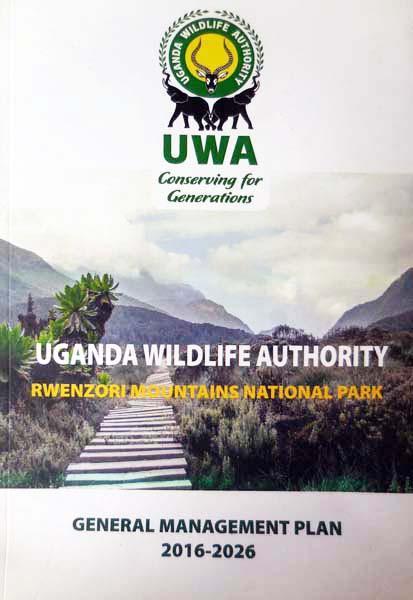
This week’s reading homework!
I’m totally smitten by this fabulous and diverse part of Uganda: GIANT ‘larger than life’ plants that are fit for a filmset, my friend the Three-horned Chameleon, rivers, snow-capped peaks, glaciers, crater lakes, hot springs, unique birdlife – that you can find nowhere else in Uganda, fifty mountain lakes … the Rwenzoris has so much to discover, and that’s just the natural environment. I haven’t even touched on the region’s unique cultures and foodstuffs you only find here. Keep reading my #RwenzoriDiary.
A highlight of our trip to the Rwenzori region – of Bundibugyo, Fort Portal, Kabarole and Kasese Districts – was a visit to the Female and Male Springs at Sempaya. Semliki is a short and dramatically scenic drive to the north of Fort Portal on an excellent tarmac road. It couldn’t be easier to find.
Here’s a summary of the video transcript. We are at the Female Spring at Sempaya.
“I can smell the sulphur!” Say I.
“This spring is between 96 and 98 degrees, but not everywhere. For example, this is not as hot and the other one where we normally boil eggs.” Muhindo Leslie was our very knowledgeable UWA guide.
“Many years ago, water (from the Female Spring) used to go up to three metres in the air.
The water has lots of dissolved salts. These build up in the channels and block them. In time, that one may close, but maybe through those cracks, another one will develop. The Female Spring used to push water up three metres, as recently as 1994.”
Watch the video closely and you may spot the intrepid Andrew Roberts, searching for a photo opportunity! Look again and you may see this ka muzungu waving at you!
You can also visit the Male Spring at Sempaya. The walk between Sempaya’s two springs takes half an hour or so and takes you through Uganda (and East Africa’s) only semi-deciduous forest. It is a fragment of the DRC’s Ituri Forest. The screech of baboons fills the air as we walked through Ironwood trees and palms. It was like no other forest I’ve visited: familiar yet tropical, clammy, with more than a few insects!
Hover over the photos below to read the captions. First is the Female Spring, then the Male Spring at Sempaya, Semliki National Park.
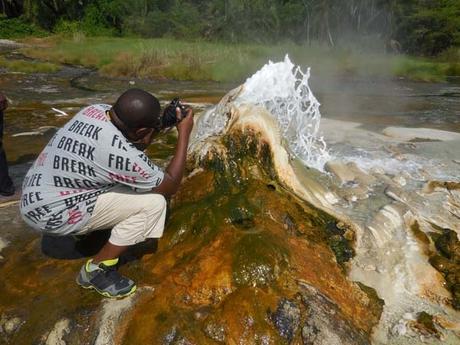
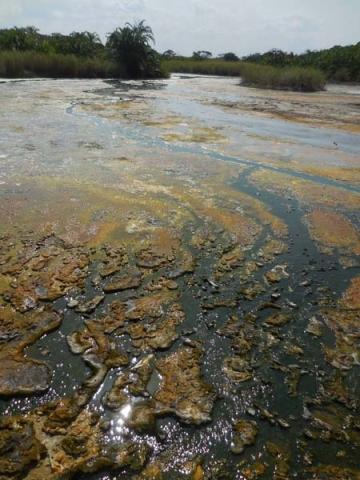
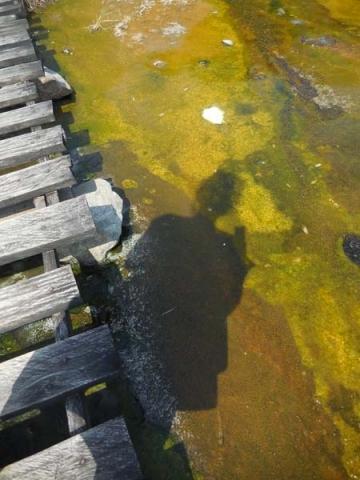
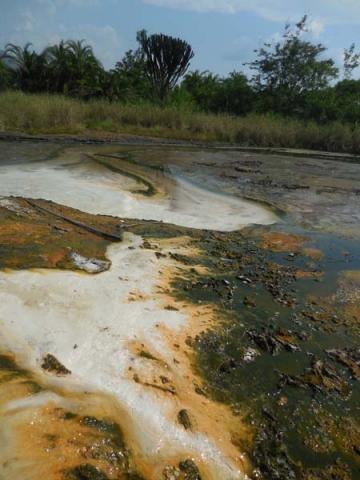
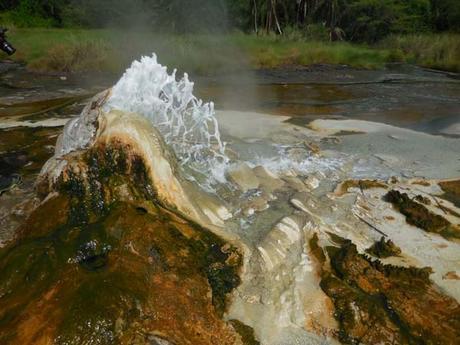
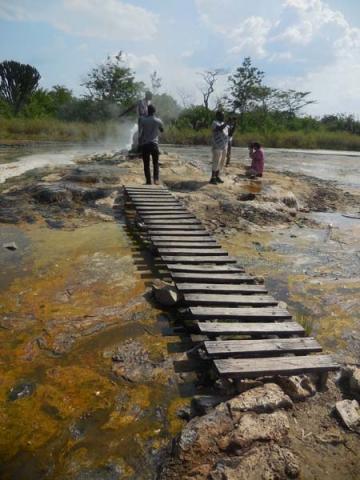
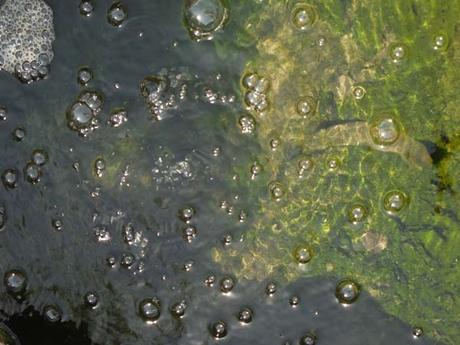
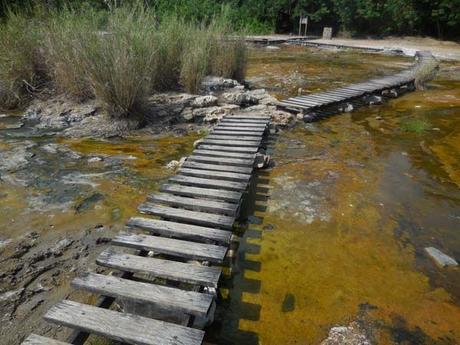
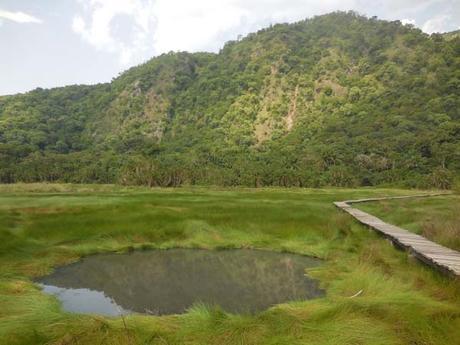
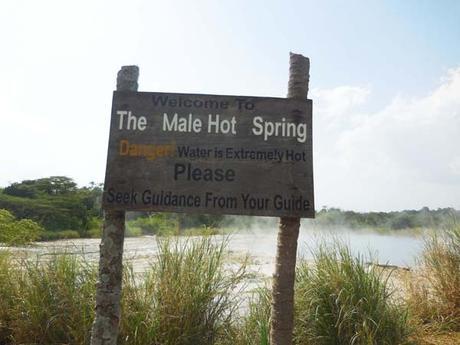
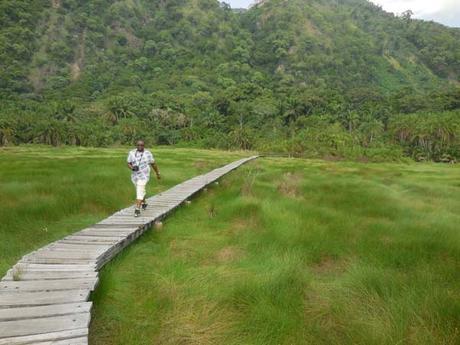
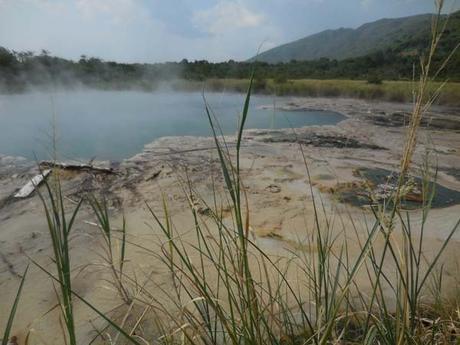
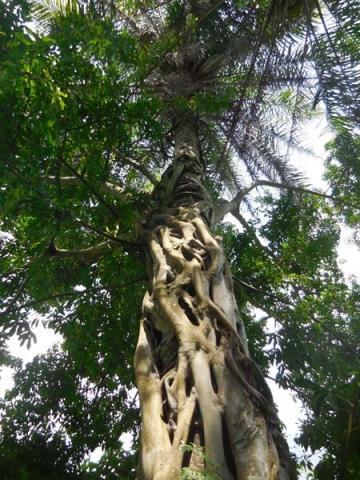
It’s taken me an unbelievable eight years to reach Semliki.
UWA’s Patrick Tushabe screamed with surprise when I told him that! (And invited me back for a proper visit too).
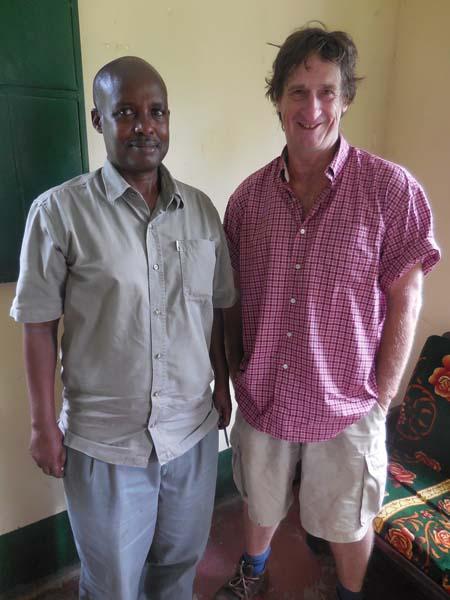
Why did it make me so long to visit Semliki? Back in 2009, my VSO friend Dr Richard Feinmann invited me to Semliki. I had traveled so much that year – work safari field trips to Queen Elizabeth with the Uganda Conservation Foundation, climbing Mount Elgon with volunteer friends, a rainy bank holiday weekend in Lake Bunyonyi – that I was worried I would quickly ‘do’ Uganda and run out of places to visit. I decided not to go on the Semliki trip, just so I could have at least one new place left to visit…! How wrong I was to think like that.
Do you know Uganda keeps getting bigger? How so? Perhaps it’s because it’s developing (new lodges, more activities, better roads); or perhaps it’s because I travel for more reasons than I did before. Where once I looked for wildlife encounters and physical challenges, now I’m passionate about community tourism and food culture too. And don’t think I have finally visited Semliki because it was the last remaining place to visit! Oh no, far from it.
Follow the #RwenzoriDiary hashtag on Twitter, Instagram and via my Diary of a Muzungu Facebook page – and please keep those hiking tips coming!
Tags:
#RwenzoriDiary, hiking, Rwenzori trekking, Semliki, Sempaya Springs, Uganda, Uganda Travel, UWA« How private patrols support Bugoma Forest conservation

